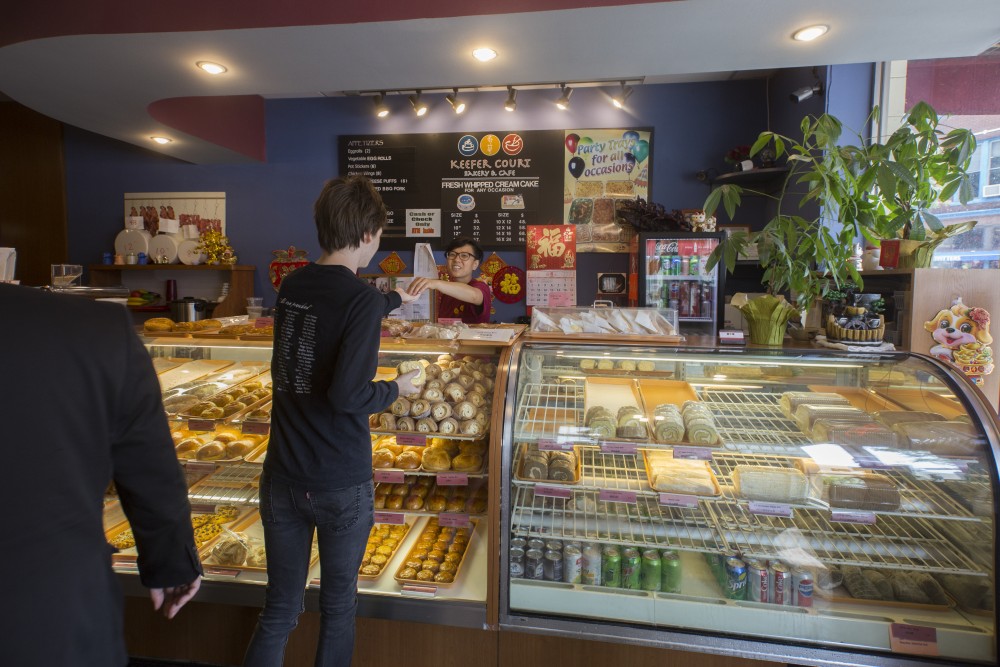While new developments and chain restaurants reshape the University of Minnesota area, some West Bank small businesses have stood the test of time.
The area’s retention of local shops is particularly notable given the increasing presence of chain restaurants and recent small business closures in Stadium Village and Dinkytown in past years. Business owners cited various reasons for being able to keep doors open, but many noted the unique neighborhood dynamic as a factor.
West Bank has a total of 223 small businesses, including Riverside Mall boutiques and kiosks, according to West Bank Business Association records. Small businesses outnumber chains 31 to 1. Stadium Village has 15 small, single-location businesses.
The high number of small businesses on the West Bank is in part due to property owners who keep rent stable and invest in the community, said Jamie Schumacher, executive director of WBBA. The association encourages local investment in small businesses and aims to deter gentrification in the neighborhood.
While support from the community can encourage growth, Schumacher explained conditions vary from area to area. There are still buildings and floors in parts of West Bank that stand vacant, she said.
Establishing a foothold as a small business on West Bank doesn’t happen overnight. Keefer Court, a Chinese restaurant and bakery, has been carving its niche in the community for more than 30 years. Paulina and Sunny Kwan started the business as a restaurant, bakery and fortune cookie place rolled into one, said their daughter, Michelle Kwan.
“We are a true family-owned business,” said Kwan. Being a mom-and-pop shop has helped them survive, she added. Operating costs are lower, and the family has a direct stake in the business.

But with the rise of chain restaurants in the University area, businesses like her parents’ aren’t the norm anymore. Chain restaurants lack the intimacy of a family-run eatery, said Kwan.
Kwan credits the immigrant population stemming from Riverside Plaza for the continued proliferation of small businesses.
“People started either renting or buying businesses to have stores that are going to be a comfort for the community,” Kwan said.
Large developers can pose a threat to small business owners, but some have found security in support from their landlords and the community.
Acadia co-owner Juliana Bryarly said she isn’t worried about developers buying up the property. The bar and grill has been in West Bank for 10 years, and Bryarly said the landlord’s commitment to small businesses has kept their space secure. Acadia’s landlord, West Bank Community Development Corporation, is a non-profit group formed by residents concerned about small businesses being bought out by large developers.
Bryarly said their previous landlord from Acadia’s first location in Stevens Square did not have the same investment in small businesses. Acadia was confident enough in its agreement with the WBCDC to sign a lease rather than purchase the property.
Other entrepreneurs have sought security through property ownership.
Russom Solomon is both the co-owner of the Ethiopian eatery The Red Sea restaurant and bar and the property itself. Solomon has made an effort to control variables that could impact his business by purchasing the property and staying involved in community organizations.
“You do everything you can and someone can push you out. It’s just a bad feeling,” said Solomon.
New developments pose a challenge for small businesses with fewer resources, he added.
In the future, Solomon wants to encourage students to come try food outside of the chains they know.
“It’s a safe neighborhood with a lot of culture, a lot of diversity,” said Solomon.

















